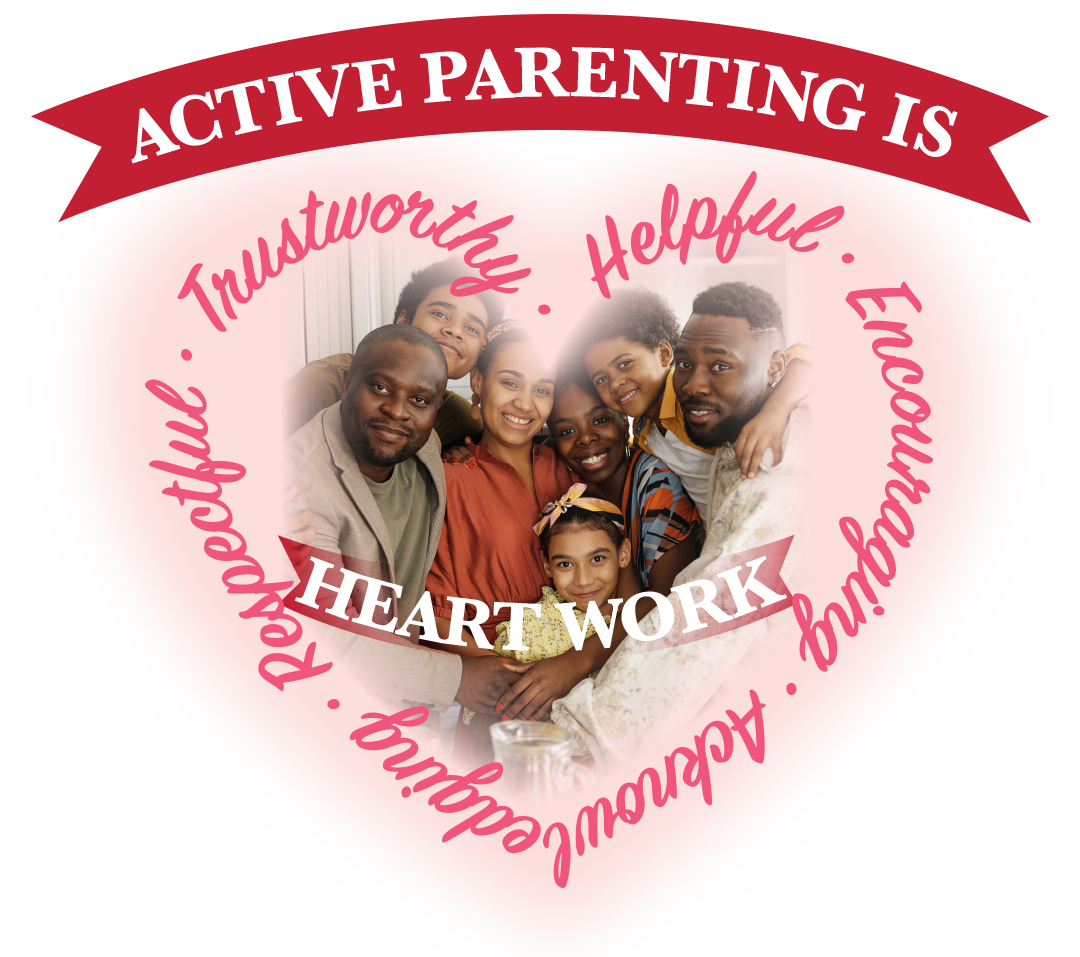
13 Feb Active Parenting is Heart Work!
CELEBRATING THE MONTH OF LOVE
When we think about love or about being in love the imagery of a heart comes to mind. We often draw hearts on notes we write to our children as an expression of the love we have for them to include in their lunches, backpacks, and other places they will be sure to see them. In this month’s blog, we will take a closer look at the HEART framework for communicating with our children and teens since parenting is “heart” work!
ACTIVE COMMUNICATION
We teach that active communication means listening to our children and teens on all three channels: words, tone of voice and non-verbal cues (body language and facial expressions). Let’s go a little deeper and connect on a heart-to-heart level. The HEART acronym helps us to remain calm, focused, and supportive in our interactions with young people as we examine our intentions behind the encounters we have with them.
HEARTWORK:
H – is what I’m about to say helpful or will it be harmful/humiliating?
Children, particularly adolescents, are extremely sensitive to shaming. Being humiliated in front of their peers is absolutely horrifying to them and may do irreparable harm to a fragile parental relationship.
E – will they be encouraged or embarrassed/enraged after speaking with me?
Our job, as caring adults, is to “build up” our children. The world will do its fair share of “tearing them down.” We have the power to encourage them towards their dreams or crush them with a careless, not-well-thought-through comment.
A – am I acknowledging who & where my child is right now, or will this make them anxious/angry?
Uncertainty about the future creates anxiety and childhood is full of anxiety-provoking experiences. An anxious person may even “present” as angry and not even be aware of it since anger is actually a secondary emotion. Letting our children know that right now they are already “good enough” even as we encourage them to learn new skills and behaviors.
R – will they respect me or resent me?
In our democratic society, it’s so important to be treated respectfully. The absence of respect almost always creates a power struggle and disrespect in return. When we show our children respect, we help them learn to respect themselves while demonstrating how to treat others respectfully. Author Bernard Malamud wrote, “Respect is something you have to give in order to get.”
T – am I building trust or making the situation toxic/traumatizing?
Respect and trust are the foundation of any relationship. The depth of these two characteristics indicates the strength of the bond that exists between parent and child. In my experience, this deep connection contributes to the emotional wellness of both parties in the long run. It is the quality of this relationship that should last for the duration of the parent’s lifespan.
I believe most parents want wholesome, satisfying relationships with their children and teens. When we are mindful of our intentions, we will purposely choose our words carefully and monitor our tone of voice and body language. As the saying goes, “we may not always see eye to eye, but we should always be heart to heart,” this is the caring, connected adult’s superpower.
by Veteran Active Parenting Trainer, Pamela Wood
Check out First Five Years, Active Parenting 4th Edition, and Active Parenting of Teens for more on Active Communication skills.
Active Parenting Publishers has been providing research-based education programs with an emphasis on nonviolent discipline, mutual respect, and open communication for over 40 years.
STAY IN TOUCH!
Click here to receive the latest news and offers from Active Parenting! And follow us on social media:
